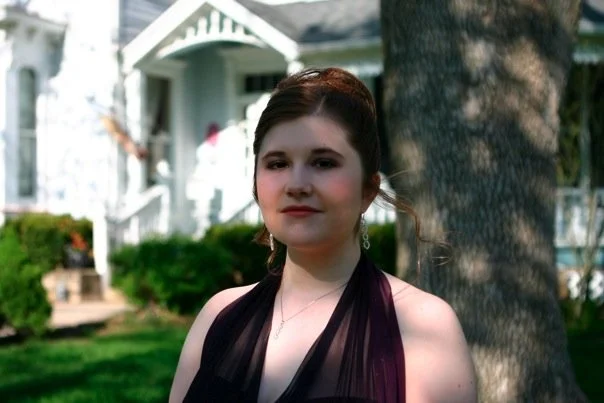TG: eating disorder, disordered eating
You don’t have to read self-help books, see a therapist, or do self-work on a regular basis to be familiar with the term “perfectionist” or “perfectionism.”
It’s not uncommon for someone to refer to themselves as a perfectionist with a sense of pride, however whenever I hear someone use this term to describe themselves, I cringe interally and make a mental note to buy them a copy of the “The Gifts of Imperfection” by Brene Brown.
New York Times bestselling author and self-described shame researcher Brene Brown might be most commonly know for her viral 2010 Ted Talk on The Power of Vulnerability. It is one of the top five most viewed TED talks in the world. However, that same year she also released her book, “The Gifts of Imperfection; Let Go of Who You Think You’re Supposed to Be and Embrace Who You Are,” which I can’t recommend enough to anyone who has ever felt like a born failure or struggled with shame and self-loathing.
It was the first resource that helped me after I graduated from college, aware that I was engaging in disordered eating and fitness habits, but unsure what to do next.
Mid-way through weight loss
Like many, my disordered eating started young, when I was in high school. I identified as a “chubby kid” in late elementary school and all of middle school. I was bullied, not specifically for my weight, but by the time I reached middle school I’d seen enough images of beautiful women on television and in movies, within the pages of shopping catalogues and on the covers of magazines to know being overweight made me worth less on the totem pole of society. With no “real life” friends, a lot of anger and resentment, and very little self-worth, I was a miserable, angsty teenager who pushed everyone away and found solace only in books, writing fan-fiction, and online role playing games.
Until high school. A time of new beginnings. By that time I knew I liked telling stories, and performing in plays became my main outlet. I began to make friends who shared my interests. To find acceptance. And when I was asked to the prom my sophomore year, I received “the push I needed to finally get fit and lose weight!”
I was fifteen.
It started harmlessly. I really did want to get healthy, to feel good in my body for once. I had never been athletic so I started by going to Curves with my mom. The environment was actually very sweet and supportive, mostly women in their 50s+. Then came counting calories and eating meal replacement bars or weight-loss snacks. I was a devoted follower of the Biggest Loser at this time and devoured each weight-loss tip and trick religiously. We had a treadmill in our house and I would walk on it for an hour a day, watching BL and America’s Next Top Model. When I finally got to a point where I didn’t feel embarrassed to work out in public I started going to the YMCA every morning before school, burning my calories on the elliptical and building muscle on the machines. At my lightest, I lost thirty pounds. People--cool kids--started complimenting me. Other boys started noticing me. Everyone was so proud. I got cast in bigger parts in school plays. I could finally enjoy going shopping for clothes. I became a happier person which in turn made me a friendlier person. I became kinder, soft-spoken and demure. I felt beautiful for the first time since I was a little girl. It was a Cinderella story.
Until, of course as you all know, I plateaued. I couldn’t cut my calories anymore. I couldn’t ampt up the length of my workouts. I couldn’t keep losing and I couldn’t maintain the weight loss. Enter: binge eating.
“Binge eating disorder (BED) is a severe, life-threatening, and treatable eating disorder characterized by recurrent episodes of eating large quantities of food (often very quickly and to the point of discomfort); a feeling of a loss of control during the binge; experiencing shame, distress or guilt afterwards; and not regularly using unhealthy compensatory measures (e.g., purging) to counter the binge eating. It is the most common eating disorder in the United States.” - www.nationaleatingdisorders.org
I was a regular binge eater from somewhere during my junior year in high school to my second year of college, so just about four years. The cycle was simple: eat as “healthy” (as little and as restrictive) as possible for as long as possible, “fall off the bandwagon,” and then compulsively eat as much food as I could stomach with the promise that tomorrow I would “make up for it” by “cleansing” for a day (only eating fruits and vegetables or something light like cereal.) *Note: I am not saying all cleanses or vegetarians are wrong, just that for me in this time and place it was definitely not a mentally or physically healthy choice.
One ordinary day, second semester of my junior year of college, I was speaking with a friend about my current calorie restrictions (less than 1000 a day) and she simply pointed out, “That’s not healthy. You can’t live on that.”
Silly as it sounds, I realized she was right. That’s all it took. A little outside perspective. A reality check.
The Hermione Granger in me knew what to do next: visit the library.
Only after reading up on the various types of eating disorders, disordered eating, and unhealthy behaviors related to weight loss did I realize I needed to make some changes to my lifestyle.
All of this to say, once I finally got to a place where I could start trying to work through my issues surrounding food, fitness, and body image, it became apparent one main cause for my disordered eating was perfectionism.
“Perfectionism is not the same thing as striving to be your best. Perfectionism is the belief that if we live perfect, look perfect, and act perfect, we can minimize or avoid the pain of blame, judgement, and shame. It’s a shield. It’s a twenty-ton shield that we lug around thinking it will protect us when, in fact, it’s the thing that’s really preventing us from flight.” -Brene Brown
Perfectionism. For me perfection was about feeling like I belonged. That friendless pre-teen “loser” was still living inside me and she was terrified. I wanted to feel worthy, to be well-liked. To know I was good enough, without question. This meant getting outside validation, because it sure as hell wasn’t coming from the inside.
In college it meant being within the top ten percent of my class. Always being prepared--studying the material backwards and forward so that I would never be caught not knowing an answer, for not knowing would mean I was failing.
In regards to my body and disordered eating, my perfectionism manifested in this way:
- feeling superior for eating “clean,” “safe,” “good” foods
- feeling like a failure after eating (or binging) on “bad” “unclean” foods
- eating as little as possible for days at a time to make up for eating “bad” foods
- binging after these periods of starvation - most often on junk food
- sometimes taking laxatives to try and manage this cycle
- hating my body, constantly scrutinizing it, anxious about how others perceived it
- scrutinizing other people’s bodies, comparing myself to theirs, seeing their body as a marker of their worth
- spending a large chunk of my time obsessed with food, exercise, weight loss, and my body when I could have been making memories and trying new things
- feeling worthless, disgusting, like I was born wrong
- feeling that I didn’t belong and was unworthy of love
- suicidal thoughts* (I never intended to kill myself. I fantasized about it but never wanted to die)
So. How did I get from there to here?
A lot of damn hard work, that’s how. Work that included reading “The Gifts of Imperfection,” and “Rising Strong,” another one by Brene Brown, THERAPY, sharing my story with a select number of supportive friends, bawling my eyes out, growing up. Honestly, I’ll have to write a completely separate post to go into more detail because it’s been (and still is) a long road.
But the good news is I’m here now, past the worst of it, and I haven’t had a binge like the kind I used to have in over five years (if my memory is accurate)!
I’ve decided to share this story NOT because I want sympathy or attention, but because it gives some context as to why I am the person I am today and why I want to dedicate this blog in part to figuring out how to live a normal healthy lifestyle, without dieting.
I’ll close by leaving you with Brene Brown’s Ten Guideposts to Whole Hearted Living. It’s not quite the same unless you’ve read the book, but I love this bomb ass poster made by Leonie Dawson. You can actually download the poster, print it, and color it in yourself if you like.





